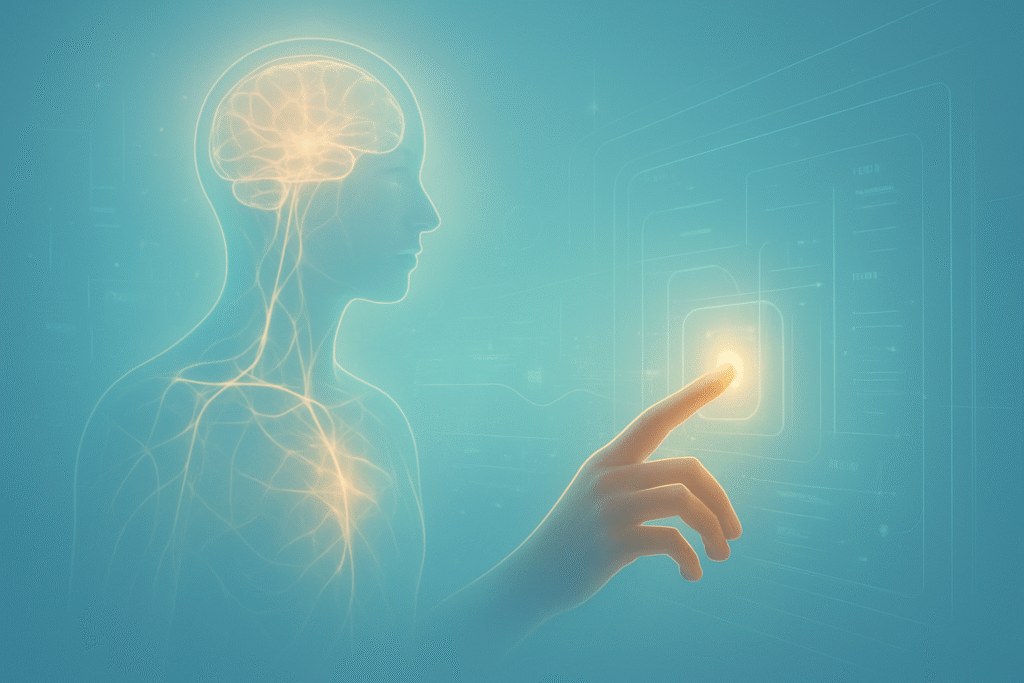
Vatican City, November 10, 2025 – As artificial intelligence continues its rapid integration into healthcare, the Vatican has emerged as a prominent voice advocating for a human-centered approach, urging extra care and the unwavering preservation of human dignity. With Pope Leo XIV making fresh statements this week at the "AI and Medicine: The Challenge of Human Dignity" congress, and building upon foundational documents like the "Rome Call for AI Ethics" and the "Note on the Relationship Between Artificial Intelligence and Human Intelligence," the Holy See is driving a critical global conversation about the moral imperatives guiding AI's application in the sensitive field of medicine. This ongoing push underscores a profound concern that technological advancement must serve humanity's best interests, rather than diminish the intrinsic value of every individual.
The Vatican's consistent pronouncements highlight a proactive stance, seeking to shape the future of AI medicine with an ethical compass. Their initiatives are not merely theoretical discussions but concrete frameworks aimed at influencing developers, policymakers, and healthcare providers alike. The emphasis is clear: AI must be a tool for empowerment and equity, meticulously designed to complement human care, not replace it, ensuring that the most vulnerable are protected and that the sacred patient-provider relationship remains paramount.
The Algorethics of Care: Deconstructing the Vatican's Ethical Framework
The bedrock of the Vatican's ethical vision for AI in medicine is the "Rome Call for AI Ethics," first signed on February 28, 2020. This pivotal document, spearheaded by the Pontifical Academy for Life, established six core principles, affectionately termed "algorethics," designed to guide the ethical development and deployment of AI. These principles include Transparency (AI systems must be understandable), Inclusion (AI must not discriminate), Accountability (human responsibility for AI actions), Impartiality (AI should be unbiased), Reliability (AI systems must be dependable), and Security & Privacy (robust measures are essential). These guidelines stand in stark contrast to purely profit-driven or technologically deterministic approaches, insisting that AI's ultimate purpose in healthcare is to serve the common good and empower individuals, never to exploit.
Further solidifying this ethical framework, the "Note on the Relationship Between Artificial Intelligence and Human Intelligence," approved by Pope Francis on January 14, 2025, and released on January 28, 2025, provided extensive guidelines for AI across various sectors, with a strong focus on healthcare. This document explicitly warns against AI replacing human intelligence or the essential patient-provider relationship. It stresses that weighty decisions about patient treatment must always remain with human professionals, never delegated to AI. Crucially, the "Note" rejects the use of AI to determine treatment based on economic metrics, cautioning against a "medicine for the rich" model that could worsen healthcare inequalities. It also highlights the critical need for data privacy and warns against the anthropomorphization of AI, emphasizing its inherent lack of empathy compared to authentic human relationships.
Most recently, Pope Leo XIV, in his messages this November 2025 to the "AI and Medicine: The Challenge of Human Dignity" congress, reiterated these core tenets with renewed urgency. He emphasized that "the more fragile a human life is, the greater the responsibility of those charged with caring for it." The Pope called for AI in healthcare to genuinely enhance interpersonal relationships and care, never replacing the human element. His statements underscore a moral imperative for AI development to reflect justice, solidarity, and a profound reverence for life, urging broad collaboration to ensure AI-driven medicine promotes human flourishing rather than being swayed solely by "vast economic interests."
Corporate Conscience: How Ethical Imperatives Shape the AI Industry
The Vatican's ethical directives have not gone unnoticed by the technology sector. Major players like Microsoft (NASDAQ: MSFT) and IBM (NYSE: IBM) were initial signatories of the "Rome Call for AI Ethics," signaling an early recognition within the industry of the need for ethical guardrails. More recently, Cisco (NASDAQ: CSCO) in April 2024 and Qualcomm (NASDAQ: QCOM) in June 2025 also joined the initiative, demonstrating a growing trend among tech giants to align with human-centered AI principles. This engagement suggests a competitive shift, where an ethical stance in AI development could become a significant strategic advantage. Companies that demonstrably integrate principles like transparency, accountability, and inclusion into their AI healthcare solutions may build greater trust with consumers, healthcare providers, and regulators.
Conversely, companies that disregard these ethical considerations risk significant reputational damage, regulatory backlash, and potentially losing market share to more ethically conscious competitors. The Vatican's warnings against AI applications that could lead to discrimination or the erosion of human dignity directly challenge business models that prioritize efficiency or profit over patient well-being. For startups operating in the AI medicine space, integrating "algorethics" from inception could be a key differentiator, allowing them to build products that are not only technologically advanced but also morally sound and socially responsible. This could disrupt existing products or services that have not adequately addressed ethical concerns, pushing the entire industry towards a more responsible innovation paradigm.
The involvement of eleven world religions in signing the "Rome Call" in July 2024 further broadens the societal pressure on AI companies. This collective voice emphasizes that ethical AI is not merely a religious concern but a universal human one, requiring robust frameworks that transcend cultural and economic boundaries. For AI labs and tech companies, navigating this landscape means investing not just in technical prowess but also in ethics committees, transparent development processes, and a commitment to human oversight, potentially leading to new roles and departments focused on AI ethics and governance.
Broader Implications: AI Ethics in the Global Landscape
The Vatican's sustained focus on ethical AI in medicine fits into a much broader global trend of increasing scrutiny and regulation of AI technologies. Their initiatives, particularly the "Rome Call" and the "Note," serve as a powerful moral compass, influencing public discourse and potentially shaping policy beyond religious institutions. By emphasizing human dignity, the Vatican contributes a unique, deeply philosophical perspective that complements purely legal or technical regulatory efforts, such as the European Union's AI Act or the Pentagon's ethical principles for AI. This multi-faceted approach underscores the complexity of governing AI, requiring input from diverse stakeholders.
The impact of these ethical imperatives extends to fostering greater public trust in AI, particularly in sensitive sectors like healthcare. As concerns about algorithmic bias, data privacy, and the potential for AI to dehumanize medical interactions grow, the Vatican's call for transparency, inclusion, and human accountability offers a framework for building AI systems that are both effective and trustworthy. Without such frameworks, there is a risk of widespread public skepticism, hindering the adoption of beneficial AI technologies. The "Note's" explicit warning against a "medicine for the rich" model also highlights critical societal concerns about exacerbating existing healthcare inequalities, pushing for AI solutions that promote equitable access and outcomes.
Comparisons to previous AI milestones reveal that while technological breakthroughs often grab headlines, the ethical implications are increasingly becoming the focal point of discussion. Unlike earlier periods of technological advancement where ethical considerations often lagged behind innovation, the current era sees ethical frameworks being developed concurrently with, or even in anticipation of, new AI capabilities. The Vatican's consistent engagement ensures that the moral dimension remains central, preventing a purely utilitarian or efficiency-driven approach to AI in healthcare that could overlook fundamental human values.
The Horizon of Care: Future Developments in Ethical AI Medicine
Looking ahead, the Vatican's sustained advocacy is expected to drive several key developments in the ethical landscape of AI medicine. In the near term, we can anticipate increased collaboration between religious and ethical bodies, tech companies, and medical institutions to refine and implement existing ethical frameworks. The "AI and Medicine: The Challenge of Human Dignity" congress, ongoing this week, is a prime example of such interdisciplinary dialogue, likely leading to further white papers, best practices, and potentially even certifications for ethically developed AI healthcare solutions. There will be a continued push for AI systems that can explain their decisions (explainable AI), crucial for fostering transparency and accountability in clinical settings.
Longer term, experts predict a growing emphasis on "AI for good" initiatives within healthcare, where the development of AI is explicitly guided by principles of social justice, equity, and human well-being. This could lead to more AI applications focused on addressing global health disparities, assisting in underserved regions, and making healthcare more accessible and personalized without compromising human dignity. Challenges that need to be addressed include the global harmonization of ethical guidelines, ensuring that these principles are not just theoretical but are effectively embedded into the entire AI development lifecycle, from data collection to deployment and monitoring. Furthermore, the rapid pace of AI innovation will necessitate continuous adaptation and refinement of ethical frameworks to address new capabilities and unforeseen implications.
Experts predict that the moral leadership offered by institutions like the Vatican will play an increasingly vital role in shaping public policy and corporate responsibility. We may see more national and international bodies adopting or integrating elements of the "Rome Call" into their own regulatory frameworks, creating a more cohesive global approach to AI ethics. The emphasis on human oversight and the irreplaceable nature of human empathy in healthcare is likely to reinforce the role of healthcare professionals, even as AI augments their capabilities, ensuring that technology remains a servant, not a master, in the healing process.
A Moral Imperative for the AI Age: Wrapping Up the Vatican's Vision
The Vatican's unwavering call for ethical imperatives in AI medicine represents a crucial intervention in the rapidly evolving technological landscape. The key takeaways from their initiatives—the "Rome Call for AI Ethics," the "Note on the Relationship Between Artificial Intelligence and Human Intelligence," and Pope Leo XIV's recent statements—underscore a profound commitment to human dignity, responsible application, and the non-negotiable value of human relationships in healthcare. By establishing principles like transparency, inclusion, accountability, and impartiality, the Vatican has provided a robust framework for guiding AI development away from purely utilitarian ends and towards a human-centered future.
This development is profoundly significant in AI history, marking a period where ethical considerations are not an afterthought but a foundational element of innovation. It challenges tech giants and startups alike to integrate moral discernment into their core business strategies, fostering a competitive environment where ethical leadership can be as valuable as technological prowess. The global engagement with these initiatives, from major tech companies to diverse religious leaders, highlights a universal recognition of the need for shared values in the age of AI.
In the coming weeks and months, it will be crucial to watch how these ethical frameworks translate into concrete policies and practices within healthcare systems and AI development labs. Further collaborations between ethicists, technologists, and medical professionals will be essential to navigate the complex interplay between innovation and moral responsibility. The Vatican's persistent voice serves as a powerful reminder that as AI reshapes medicine, the ultimate measure of its success will not just be its technical sophistication, but its capacity to uphold and enhance the inherent dignity of every human life.
This content is intended for informational purposes only and represents analysis of current AI developments.
TokenRing AI delivers enterprise-grade solutions for multi-agent AI workflow orchestration, AI-powered development tools, and seamless remote collaboration platforms.
For more information, visit https://www.tokenring.ai/.





